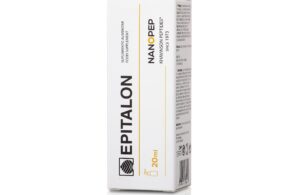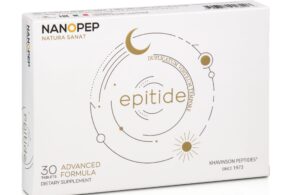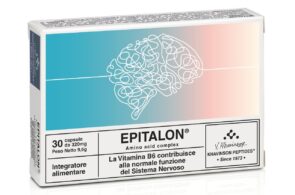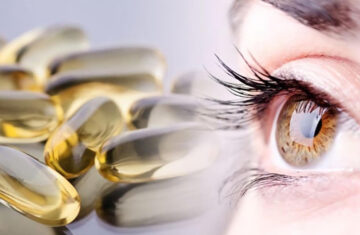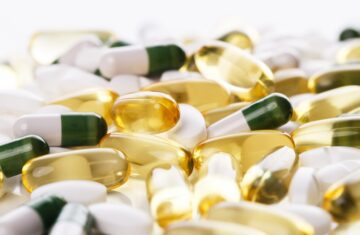How long does it take for short peptides to start working?
- How long does it take for short peptides to work?
- What positive effect do peptides have on the human body?
- Do short peptides have side effects?
- Short Peptides Long Term Effects
Have you ever wished that the drugs you took would relieve you of a runny nose or any other ailment much faster so you could get back to work? Or maybe, that the lotion you apply will clear pesky breakouts or blur out the fine lines on your face just in time for you to attend a special event?
Peptide-infused products work much faster than regular products because of the unique features peptides possess. Unlike protein chains that consist of 50+ amino acids, short-peptides contain 2–4 amino acids (AAs). Their miniature nature enables them to filter into the bloodstream faster when administered orally, and deeper into the skin when applied topically. This results in a faster recovery process.
But just how long does it take for peptides to start working? Let’s find out!
How long does it take for short peptides to work?
Short peptides typically start working anytime from 10–20 minutes, a few weeks, and can sometimes take 3-6 months before the full effects are achieved.
There are many factors that affect how long does it take for peptides to work. Some of them include:
- biological make up of the user;
- the meal eaten before or after administering the medication;
- the form of the drug (pills, IV meds, sublingual meds);
Different people respond to drugs differently. The time it takes for short peptides to work in different people might be influenced by their age, gender, weight, genetics, and underlying medical conditions. The type of food eaten is also a huge factor. Foods rich in fat at known to delay the time it takes for the effects of the drug to kick in.
To understand how long do peptides take to work, we’ll have to consider a few other different factors. At this point, it is worth noting that the therapeutic action of short peptides (as well as other drugs) will take as long as it takes the drug to get into the bloodstream. This is where the form of the drug taken plays a role: is it swallowed whole, administered sublingually, injected, or inhaled?
Short peptides delivered in tablet form take relatively longer for their effects to kick in because of the lengthy processes they must undergo to enter the bloodstream. They get absorbed into the bloodstream through the stomach or intestinal walls, typically becoming active within a few minutes and reaching peak concentrations between 1-2 hours.
IV-type peptides products work much faster — within a few seconds or minutes because they are injected directly into the bloodstream. However, they are not easy to use and can be dangerous if overdosed.
Short peptide-based products such as Epitalon spray delivered sublingually are great. They are fast-active, safe, and easy to use (can be taken at home without the help of a healthcare provider). Their effects also start working within a few seconds to minutes from the time they are taken.
What positive effect do peptides have on the human body?
Peptides provide a wide range of benefits to the human body. Some of the common ones include:
- Strengthening of the immune system;
- restoration and protection of vital organs such as the liver;
- enhancement of brain function;
- Improvement of eyesight;
Other benefits include blood-sugar regulation in diabetic patients and improvement of ovary health in women. By strengthening the immune system, peptides help prevent disease-causing germs such as viruses, parasites, and bacteria.
It is worth noting that different types of peptides are infused in drugs and dietary supplements. Consequently expected benefits may vary based on the type infused in a given product. For example, Epithalamin peptide has strong anti-ageing effects. It can help to reduce wrinkles, smoothen skin, and promote a youthful look. Epitide Oropeps is a well-known supplement that contains it.
If there is a specific benefit you hope to gain from using peptides, be sure to find products that contain the sort of peptides that provide them.
Do short peptides have side effects?
Yes, they do. All drugs and dietary supplements have side effects, and peptide-based products are not an exception. However, peptide-based supplements are less likely to cause serious adverse effects because they are made like the peptides that are naturally present in the human body and protein-rich foods.
Many people who take peptide supplements do not often experience any side effects, and there is a study that backs this up. The female participants involved in it showed no signs of adverse effects after being placed on collagen peptides for 8 weeks.
However, it is worth noting that some people may experience mild symptoms such as itching, skin rash, and sensitivity after using certain peptide-infused lotions and ointments. Most of these cases are typically linked to poor or low-quality products. This is why it is important to always buy from trusted vendors such as Club120.
So, do peptides have side effects? They have almost none, but it’s better for you to consult with your health professional before taking a course.
Short Peptides Long Term Effects
Short peptides are safe and well-tolerated, and they are unlikely to cause any serious side effects in both the short and long term. In fact, they may be safer than conventional drugs in the long term because of their unique features. Rather than accumulating in the liver, kidney, or other sensitive organs, they get recycled by the body just like natural peptides.
Peptide-infused products are a safe and effective way to boost the immune system, protect the liver from damage, enhance cognitive function, and suppress the physical signs of ageing. If you are not already using them, you should consider doing so. However, note that they will not be safe for you if you are pregnant, have or have had cancer. Consult your doctor before taking any supplement.
Short peptides usually require anything between 10 and 20 minutes to begin acting, and a few weeks or around 3–6 months to fully manifest their effects. Everybody is unique – -the metabolic response can be different in different people.
Short peptides have an effect that can last for a day. Once they participate in the cell cycle and do their task, they have to be replaced by new ones. However, this longevity differs in certain individuals depending on the person’s gender, age, weight, genetics, and medical history. The kind of food consumed also has a significant role. Foods high in fat are known for delaying the onset of a drug’s effects.
Peptides provide a wide range of benefits to the human body. They can aid in immune system strengthening, vital organ support and restoration, improved cognitive function, and even improve your eyesight a bit.
Some other advantages include better ovarian health for women and blood sugar control in diabetic people. Peptides can also provide a good boost to the immune system.
Peptide-based solutions are not exempt from the negative effects that are common to all medications and food supplements. However, peptide-based supplements originate similarly to the peptides found naturally in the human body, making them less likely to have major negative effects.







